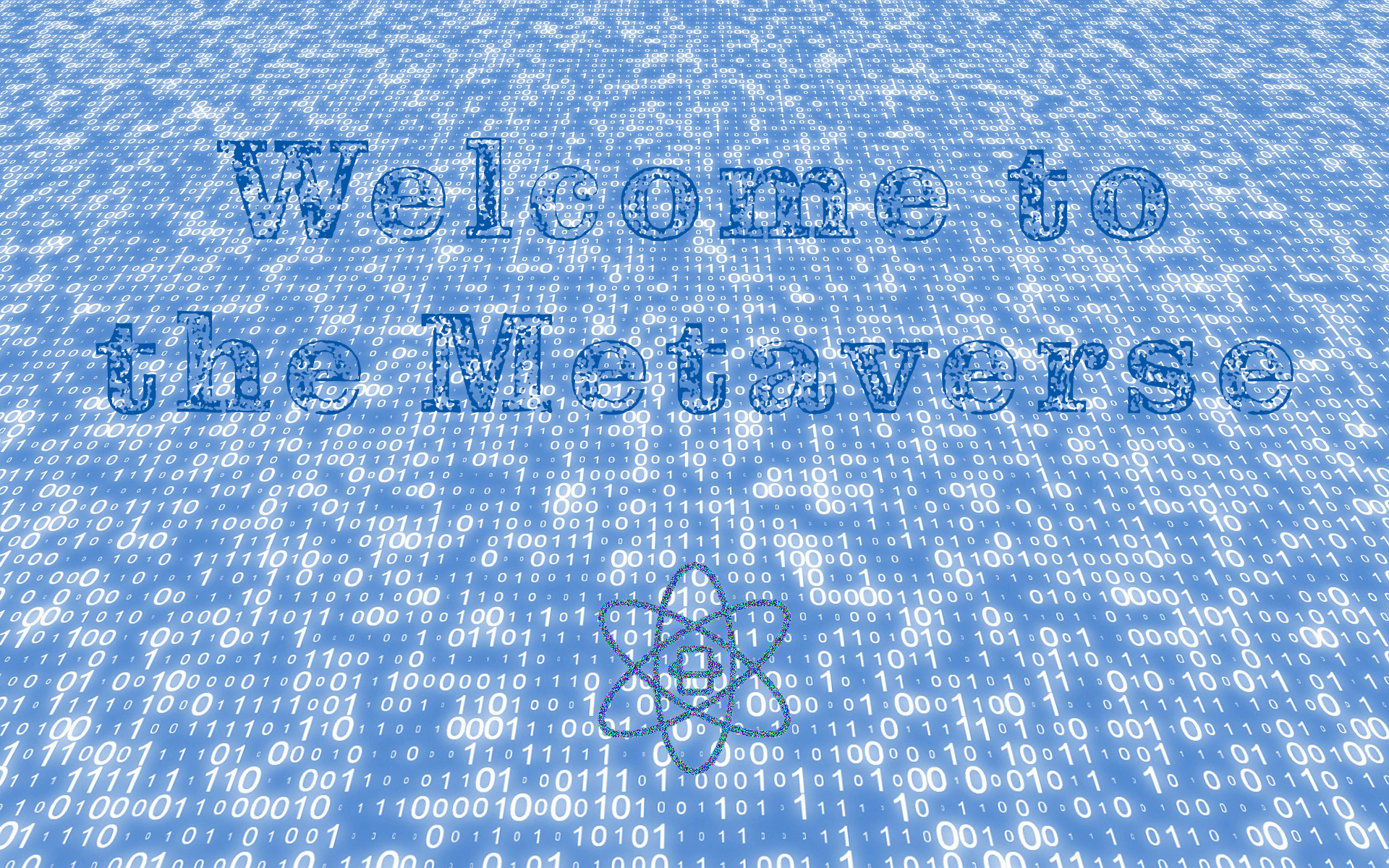Table of Contents
Key Takeaways:
- The metaverse refers to a virtual, immersive world where people interact with digital environments, each other, and digital assets.
- Identity in the metaverse involves creating and managing a digital persona or avatar that represents individuals in these virtual environments.
- Pseudonymity allows users to engage under a consistent alias, providing privacy without full anonymity, while anonymity enables interactions without revealing any identifiable information.
The metaverse, a term first coined by Neal Stephenson in his cyberpunk novel Snow Crash, refers to a network of interconnected virtual reality worlds that function similarly to the Internet. In these virtual spaces, users can interact, play games, and engage in activities much like they would in the physical world. The concept of the metaverse was initially explored by William Gibson, who coined the term “cyberspace” in his novel Neuromancer. In these synthetic environments, avatars and pseudonyms often represent individuals, as famously depicted in movies like Ready Player One.
However, understanding identity in the metaverse can be confusing. People often ask, “What does identity mean in a world centered around avatars and pseudonyms?”
To answer this, it’s essential to first explore what the metaverse is and what digital identity truly represents within it.
What Is the Metaverse?
The metaverse is a collective virtual space that combines augmented reality, virtual reality, and the internet, where users connect with each other and digital environments through avatars. This immersive digital world blends the real and virtual, enabling users to engage in social interactions, gaming, commerce, and more. As the metaverse continues to expand, it brings new questions about identity, self-expression, and privacy, as users navigate their presence in this evolving digital landscape.
What Is Identity?
Identity is what makes us unique as individuals. It’s like a personal identifier that allows others to recognize and interact with us. Just as money is exchanged for goods and services, our identity is used to present ourselves to the world.
In a book from David Birch, Identity is the New Money, he explains that identity can be divided into three types: personal, social, and legal. These identities evolve over time but are distinct from one another.
The Three Pillars of Identity
Our identity consists of three main pillars: personal, social, and legal. These aspects shape how we see ourselves and how others perceive us, both in the physical world and virtual spaces like the metaverse. Let’s explore each of these identity types:
1. Personal Identity
According to Psychology Today, personal identity is composed of memories, experiences, relationships, and values that shape one’s sense of self. While these aspects change over time, they help maintain a consistent sense of who we are.
People constantly cultivate their outward personal identity through clothing, hairstyles, accessories, and more. Many obsess over their daily outfits, ensuring that their appearance aligns with their personality. This outward expression allows individuals to connect with like-minded people and find their community.
For example, during teenage years, an individual’s identity might revolve around skate and surf culture, reflected in their style. As they grow older, their identity may shift toward different interests, such as Harley Davidson motorcycles. These personal identities can help individuals connect with others who share similar passions, forming lasting friendships.
2. Social Identity
Social identity reflects your connections and affiliations, such as clubs, political views, hobbies, and possessions. Some elements of social identity are visible through clothing, while others are expressed through associations or ownership of items like cars or NFTs.
For instance, the Bored Ape Yacht Club (BAYC) is an example of a community where people pay a premium to be part of a group, showcasing how social identity can be tied to exclusive communities. Social identity is also evident in online platforms like LinkedIn (for career associations), GitHub (for coding contributions), Discord (for community engagement), and Twitter (for social connections).
As David Birch notes in Identity is the New Money, “Identity is returning to a concept built on networks, rather than index cards in a filing cabinet.”
3. Legal Identity
Legal identity is defined by the United Nations as the basic characteristics of an individual, such as name, gender, date, and place of birth, all conferred by civil registration authorities. Your legal identity includes documents like your birth certificate, driver’s license, or passport.
Legal identity consists of three components:
- Descriptive: Characteristics like hair color, eye color, height, and biometric data (fingerprints, photos).
- Locational: Your place of birth and where your identity documents were issued.
- Civil: The authority that registered your birth and attested to your identity.
While personal and social identities evolve, legal identity generally remains fixed throughout your life.
Legal identity is required for various activities worldwide, such as purchasing alcohol, gambling, or cryptocurrency transactions, which often must be linked to an individual’s legal identity. However, in the metaverse, there is a growing desire for anonymity. While many prefer to remain anonymous, the best approach for privacy and security is pseudonymity—using a consistent alias without revealing your real-world identity.
Anonymity and Pseudonymity
One of the most appealing aspects of the internet is the ability to remain anonymous. Anonymity is often seen as essential for freedom of speech, offering a sense of liberation. In today’s culture, people may hesitate to express their true opinions out of fear of backlash or rejection. Building a strong reputation takes years, but one misstep can damage it in an instant.
However, anonymity online can also lead to challenges. People can become bullies or victims of bullying when they are anonymous. The phrase “On the Internet, nobody knows you’re a dog” reflects this issue.
This cartoon, published in The New Yorker in 1993, just before the rise of the World Wide Web, highlights the difficulty of establishing trust online. This challenge will likely persist in the metaverse as well.
Importance of Pseudonymity
For many, pseudonymity solves this problem. With pseudonymity, individuals fully identify themselves to a service (through processes like Know Your Customer or KYC) and link their reputation to platforms like LinkedIn, Twitter, or GitHub. However, they are only known publicly by their pseudonym. Only the individual knows their true identity, and their reputation serves as a signal of trust.
Pseudonyms are not a new concept, nor are they exclusive to the internet. Many artists adopt pseudonyms, such as Samuel Clemens, who wrote under the name Mark Twain. Similarly, Stefani Joanne Angelina Germanotta is better known as Lady Gaga, and Norma Jeane Mortenson is famously recognized as Marilyn Monroe. The use of pseudonyms, pen names, and stage names has existed for centuries.
Pseudonymity in Internet and Web3 Communities
There are many reasons why someone might choose to use a pseudonym online. For some, it provides protection when exercising their freedom of expression, allowing them to share their genuine beliefs without fear of being ostracized. Others may hide their religion or race to avoid bullying or harassment. Some individuals disguise their gender when applying for jobs in male-dominated fields, like tech.
Pseudonymity is widely used in internet and Web3 communities, particularly on platforms like Twitter and Discord. While figures like Elon Musk tweet under their real names, thousands of others use pseudonyms. Companies like Yuga Labs, creators of the Bored Ape Yacht Club, operate entirely under pseudonyms, with founders known as Garga, Gordon Goner, Sass, and Emperor Tomato Ketchup. This trend is just beginning.
Identity in the Metaverse
Navigating identity can be challenging, particularly for those grappling with how they are perceived or expressing core aspects of their identity, such as gender or sexuality. Reflecting on the difference between who we are and who we aspire to be can inspire significant personal growth. The metaverse provides a unique platform for this journey, enabling individuals to explore their identity beyond traditional boundaries. In this virtual world, identity transformation knows no limits, allowing users to take on forms ranging from animals to mythical creatures and otherworldly beings, putting full control in their hands.
Personal Identity
The metaverse redefines personal identity, encouraging users to explore and express themselves in ways that push beyond conventional norms. This virtual environment offers endless opportunities for identity exploration, where the only limit is imagination. Users are no longer confined to their physical appearances and can experiment with new versions of themselves.
Social Identity
In the metaverse, users can either carry their real-world social identity into the virtual realm, using it to build trust and authority, or embrace pseudonymity, leaving behind their real-world associations and reinventing themselves. This flexibility highlights the metaverse’s adaptability, allowing users to maintain continuity or start fresh in their digital interactions.
Legal Identity
While much of the conversation around identity in the metaverse focuses on its fluid and customizable nature, the importance of legal identity remains significant. Just as in the physical world, laws regulate activities in the metaverse. For example, regulations governing gambling in the real world also apply to online and virtual activities. Despite the freedom the metaverse offers for identity exploration, legal identity and jurisdictional laws continue to govern virtual actions, ensuring they adhere to real-world legal standards.
The Future of Identity in the Metaverse
In the metaverse, your identity carries a lot of power. Unlike the real world, your personal identity can completely transform in the metaverse: your body, your shape, your hair, your eyes, everything about you can change. That is everything except your legal identity. Until a given metaverse is recognized by the world as a network state, and you are a legal resident of that nation-state, your legal identity in the real world will bind you in the digital one.
Identity.com is building a set of protocols and technologies that will aid in your ability to live a life pseudonymously. These protocols include KYC/AML, reputational markers, international partners, and the tools to protect every aspect of your digital life. For a deeper discussion on how digital identity can change in the metaverse, and the technology that can enable this transformation, check out our article on Unlocking the Metaverse: Exploring Virtual Identities.








